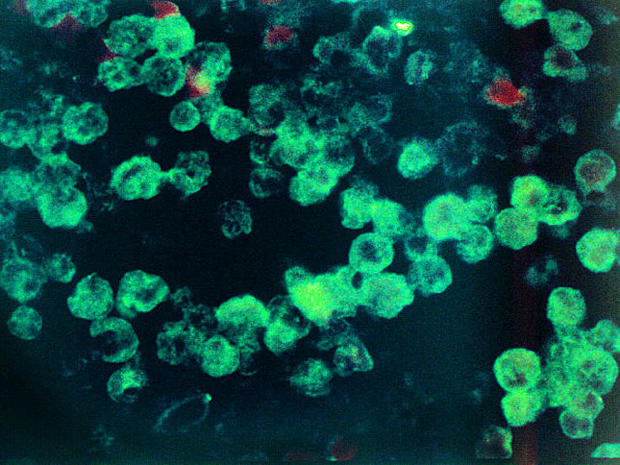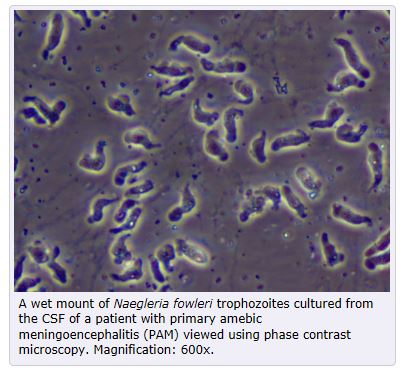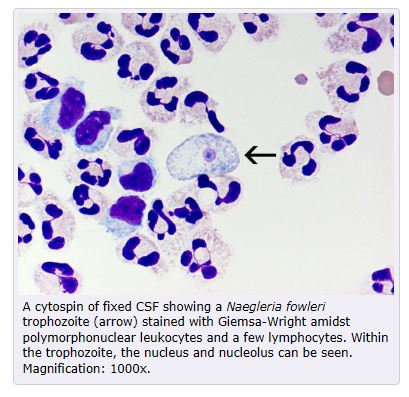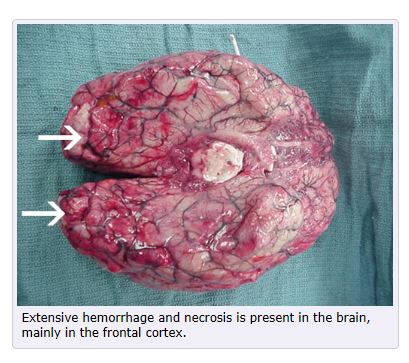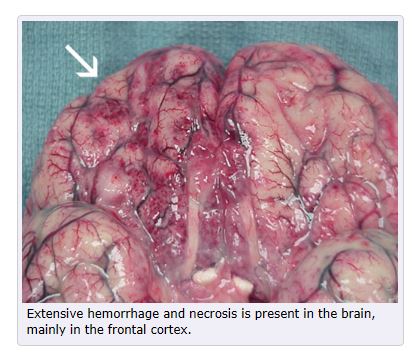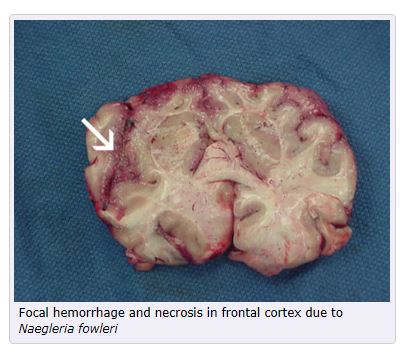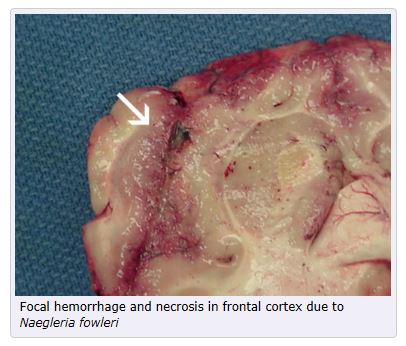This is an archived article and the information in the article may be outdated. Please look at the time stamp on the story to see when it was last updated.
BATON ROUGE, La. –Louisiana health officials have confirmed the presence of an amoeba at a leaking sample station in the St. Bernard Parish water system, CBS New Orleans affiliate WWL reports.
The state’s Department of Health and Hospitals has asked the parish to conduct a 60-day chlorine burn to kill off the amoeba in the system.
The parish has agreed to comply “out of an abundance of caution.”
Two of the seven sites tested positive for the Naegleria fowleri amoeba, the same organism that claimed the lives of a boy from Minnesota and a California woman earlier this summer.
“One positive test was at a site at the water treatment plant before the water was treated,” reads a statement from the DHH. “The second positive test occurred at 948 Angela Street, which may have been contaminated by ground water due to a leak at the sampling station.”
Monthly reports show the water system met the requirements for disinfectant levels, according to the DHH.
Five other sites tested negative for the amoeba, and one site “did not meet the required level of disinfectant.”
Officials say the water is safe to drink, but residents are being warned not to get the water into their nose when washing, bathing or swimming.
That’s how the amoeba is transferred to the brain.
“At this point that’s a decision that the DHH has to make. We trust their expertise in this field. We do we feel that the system is fine and this was an anomaly,” said St. Bernard Parish President David Peralta.
Peralta said a vehicle hit a water sampling site in Arabi, which was never reported to officials.
He said contaminated water leaked into the sampling site but not the entire parish water system.
A state health office spokeswoman said they still need to determine the source of the contamination through testing.
The DHH will speak with CDC officials Thursday.
Three deaths from the amoeba have been reported in the last several years in Louisiana, including that of a 4-year-old who died in 2013 after visiting St. Bernard Parish.
The water system no longer tested positive for the amoeba back in February 2014.
According to the Centers for Disease Control and Prevention, Naegleria fowleri causes brain swelling and is fatal in 97 percent of cases.
A person may start to experience symptoms one to five days after the amoeba enters the body.
Initial symptoms include headache, fever, nausea or vomiting, followed by stiff neck, confusion, lack of attention to people and surroundings, loss of balance, seizures and hallucinations.
The illness progresses rapidly and patients often die within a week.
The CDC says the infection cannot be transferred from person to person.
The DHH released the following precautions to take when dealing with tap water in St. Bernard Parish:
- DO NOT allow water to go up your nose or sniff water into your nose when bathing, showering, washing your face, or swimming in small hard plastic/blow-up pools.
- DO NOT jump into or put your head under bathing water (bathtubs, small hard plastic/blow-up pools); walk or lower yourself in.
- DO NOT allow children to play unsupervised with hoses or sprinklers, as they may accidentally squirt water up their nose. Avoid slip-n-slides or other activities where it is difficult to prevent water going up the nose.
- DO run bath and shower taps and hoses for five minutes before use to flush out the pipes. This is most important the first time you use the tap after the water utility raises the disinfectant level.
- DO keep small hard plastic/blow-up pools clean by emptying, scrubbing and allowing them to dry after each use.
- DO use only boiled and cooled, distilled or sterile water for making sinus rinse solutions for neti pots or performing ritual ablutions. If you need to top off the water in your swimming pool with tap water, place the hose directly into the skimmer box and ensure that the filter is running. Do not top off the pool by placing the hose in the body of the pool.
- DO keep your swimming pool adequately disinfected before and during use. Adequate disinfection means: Pools: free chlorine at 1 to 3 parts per million (ppm) and pH 7.2 to 7.8, and Hot tubs/spas: free chlorine 2 to 4 parts per million (ppm) or free bromine 4 to 6 ppm and pH 7.2 to 7.8
